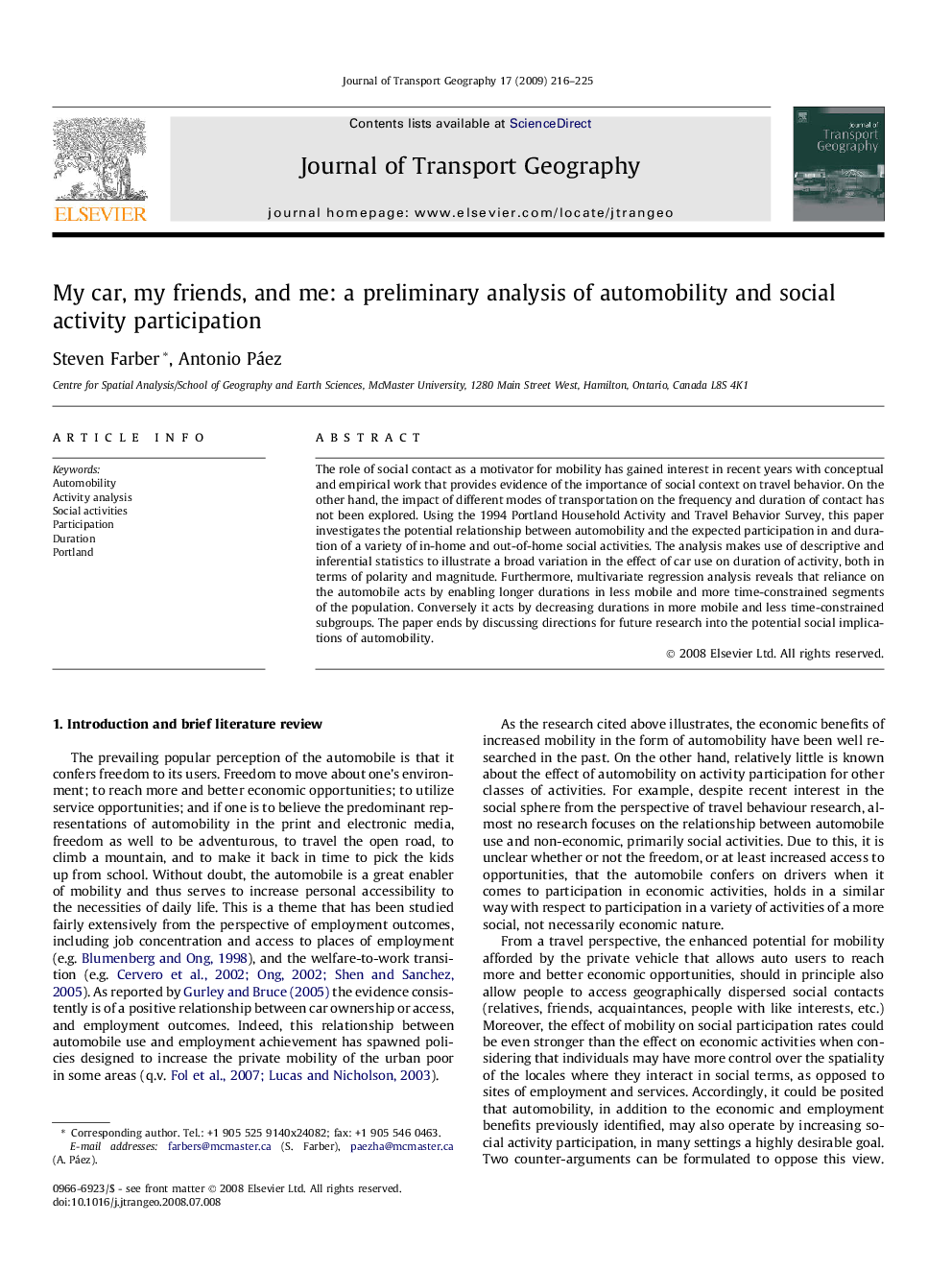| Article ID | Journal | Published Year | Pages | File Type |
|---|---|---|---|---|
| 1059879 | Journal of Transport Geography | 2009 | 10 Pages |
The role of social contact as a motivator for mobility has gained interest in recent years with conceptual and empirical work that provides evidence of the importance of social context on travel behavior. On the other hand, the impact of different modes of transportation on the frequency and duration of contact has not been explored. Using the 1994 Portland Household Activity and Travel Behavior Survey, this paper investigates the potential relationship between automobility and the expected participation in and duration of a variety of in-home and out-of-home social activities. The analysis makes use of descriptive and inferential statistics to illustrate a broad variation in the effect of car use on duration of activity, both in terms of polarity and magnitude. Furthermore, multivariate regression analysis reveals that reliance on the automobile acts by enabling longer durations in less mobile and more time-constrained segments of the population. Conversely it acts by decreasing durations in more mobile and less time-constrained subgroups. The paper ends by discussing directions for future research into the potential social implications of automobility.
